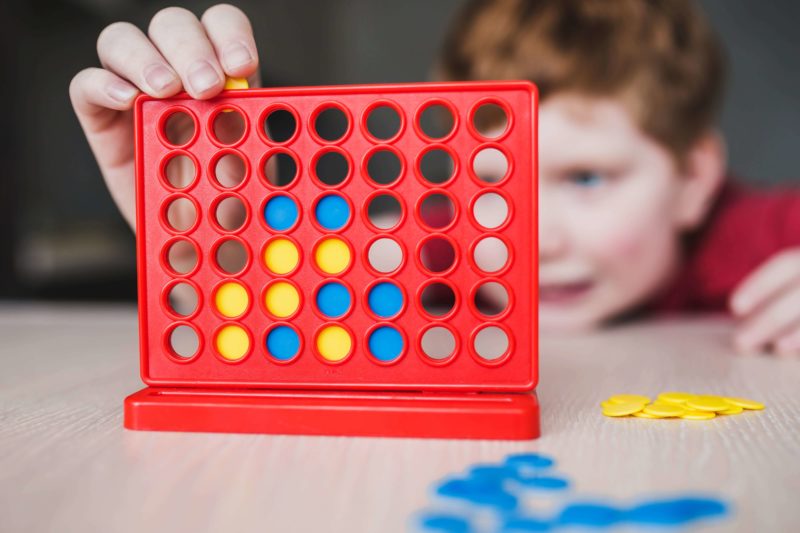Board games have been a provider of entertainment for years (and not just for kids!). Whether it be bringing the family together, keeping the kids busy or having some ‘friendly’ competition, board games are a great source of enjoyment. They can also be used in Therapy as a fun way of achieving goals, such as turn-taking, problem-solving, building fine motor skills, or simply engaging in an activity. Kids learn better when they’re having fun, so here are some of our favourite board games we use in our Occupational Therapy sessions, which you can also play at home:
- Avalanche – This game requires at least two players, so it’s great to develop social skills like turn-taking and sharing. It also involves some fine motor skills where you use large tweezers to place ‘fruits’ on a shelf whilst trying not to cause an ‘avalanche’. A good one for learning colours and names of fruits too! Avalanche is excellent for little ones (perhaps allow them to use their ‘pincer’ fingers instead of tweezers) for up to 10 years.
- Giggle Wiggle – Another great one for fine motor and practising taking turns. Giggle Wiggle requires kids to place little balls on the wiggly caterpillar’s hands. You can modify the challenge level by using pincer fingers to pick up and place the balls, or you can make it a bit more tricky by using tweezers to place the balls. Practising using a pincer grasp can help your kiddo develop holding their pencil using a functional pencil grip.
- Rush Hour – I love Rush Hour for older kids (10 years plus). Rush Hour is a fun way to develop those executive functioning skills such as initiation, problem-solving and breaking a big task down into smaller steps. It’s also a good one to improve visual-spatial organisation, as the kids have to match and place different shapes with certain colours from a picture onto a grid for the game to work (similar to Tetris). If you want to up the challenge – add a time limit into each game!
- Conversation UNO – just like regular UNO, but instead, each card has a social question one player has to ask the other when placing their card down, e.g. What do you like to do on the weekends and why? This is awesome to help those that need some extra help developing their conversation skills or even just practising what to say when making friends with someone. There are still the original super plays such as the ‘Draw Four’ card to make it a competition to win, whilst also working on being flexible!
- Connect Four – This is great for turn-taking, visual perception, and tracking as it requires two players to track the tokens vertically, horizontally and diagonally with their eyes. They need to figure out where the token is going to land so they can place it in the right spot. Plus, they aren’t just keeping track of their own colours – they need to watch their opponents as well, which is excellent for sustained engagement. It’s also a fun way to help younger kiddos count and see patterns.
- Rainbow Fish Memory Game – I loved this game and the story as a kid! As what’s in the name, this is a fantastic way to build working memory skills, sustained attention and turn-taking. Working memory plays a big part in many aspects of our lives, from remembering how to form letters to complete a task in the correct order. This game is fun for adult’s too, so get involved Mums and Dads!
- Shopping List – Similar to the Rainbowfish memory game, Shopping List requires two or more players to be the first to ‘fill their shopping trolleys’ in a bingo-type game. Instead of reading out the items, the kids take turns flipping an item over to see if it is on their ‘shopping list’. So not only is this super for developing memory skills, it’s a fun game to help improve visual perceptual skills, sustained attention, reciprocal engagement and ticking things off a list!
So, get your game face on and have fun with the kids whilst sneakily helping them develop a range of skills that will foster their development!



